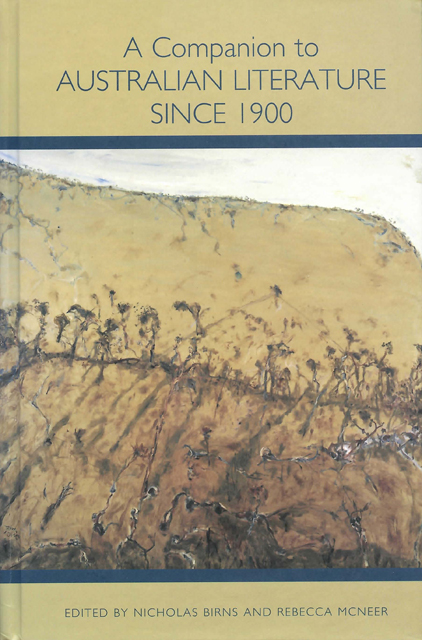Book contents
- Frontmatter
- Dedication
- Contents
- Chronology of Main Events in Australian History, 1901–2005
- Acknowledgments
- Note on the Cover Illustration and Artist
- Introduction
- Part 1 Identities
- Part 2 Writing Across Time
- Part 3 International Reputations
- Part 4 Writers and Regions
- Part 5 Beyond the Canon
- Notes on the Contributors
- Index
18 - Peter Carey
Published online by Cambridge University Press: 10 March 2023
- Frontmatter
- Dedication
- Contents
- Chronology of Main Events in Australian History, 1901–2005
- Acknowledgments
- Note on the Cover Illustration and Artist
- Introduction
- Part 1 Identities
- Part 2 Writing Across Time
- Part 3 International Reputations
- Part 4 Writers and Regions
- Part 5 Beyond the Canon
- Notes on the Contributors
- Index
Summary
Somewhere in the 1970s and early 80s, a crucial turning point in literary criticism was reached. Because of a sea change in critical approaches, whose consolidation began at that time, it has become increasingly difficult to discuss texts in terms of their intrinsic worth. Instead, the criteria for judging literary merit has tended towards the text’s allegiance to, or performance of, some ideology-driven approach or agenda, for example, the postcolonial, cultural materialist, feminist, or those emerging from queer studies. Of course, not all critics or readers have been converted. Gray eminences like Wayne Booth pleaded for an “ethics of fiction” (the subtitle of his well-received book, The Company We Keep) through the 1980s, and Harold Bloom, in a 2004 interview launching his twentyeighth book since the groundbreaking Anxiety of Influence in 1973, trumpeted the notion of literary quality so appropriate to the evaluation of Peter Carey:
I have only three criteria for whether a work should be read and reread and taught to others, and they are: aesthetic splendour, cognitive power, and wisdom. And those are not the standards now applied in the universities and colleges of the English-speaking world… . Everyone is now much more concerned with gender, sexual orientation, ethnic origin, skin pigmentation, and twenty other irrelevancies, whereas I am talking about what I have never talked about before, and that is wisdom. (Lesinska, 3–4)
Pressed to define “wisdom,” the enigmatic Bloom gave an enigmatic answer, quoting the words of the Rabbi Hillel, one of the great Jewish scholars of the century before the Common Era, as offering an instance of “perfect, balanced wisdom”: “If not I for myself, who then? And being for myself, what am I?” (Lesinska, 8–9). The words suggest that Bloom is referring to an almost existential concept of individual authenticity: that is, consciously, deliberately, and freely choosing oneself, living that self fully, and taking responsibility for the consequences.
Bloom is invoked here as an always iconoclastic and often prescient critic, whose approach authorizes a return to the examination of, and argument for, quality in literature.
- Type
- Chapter
- Information
- A Companion to Australian Literature since 1900 , pp. 281 - 292Publisher: Boydell & BrewerPrint publication year: 2010

